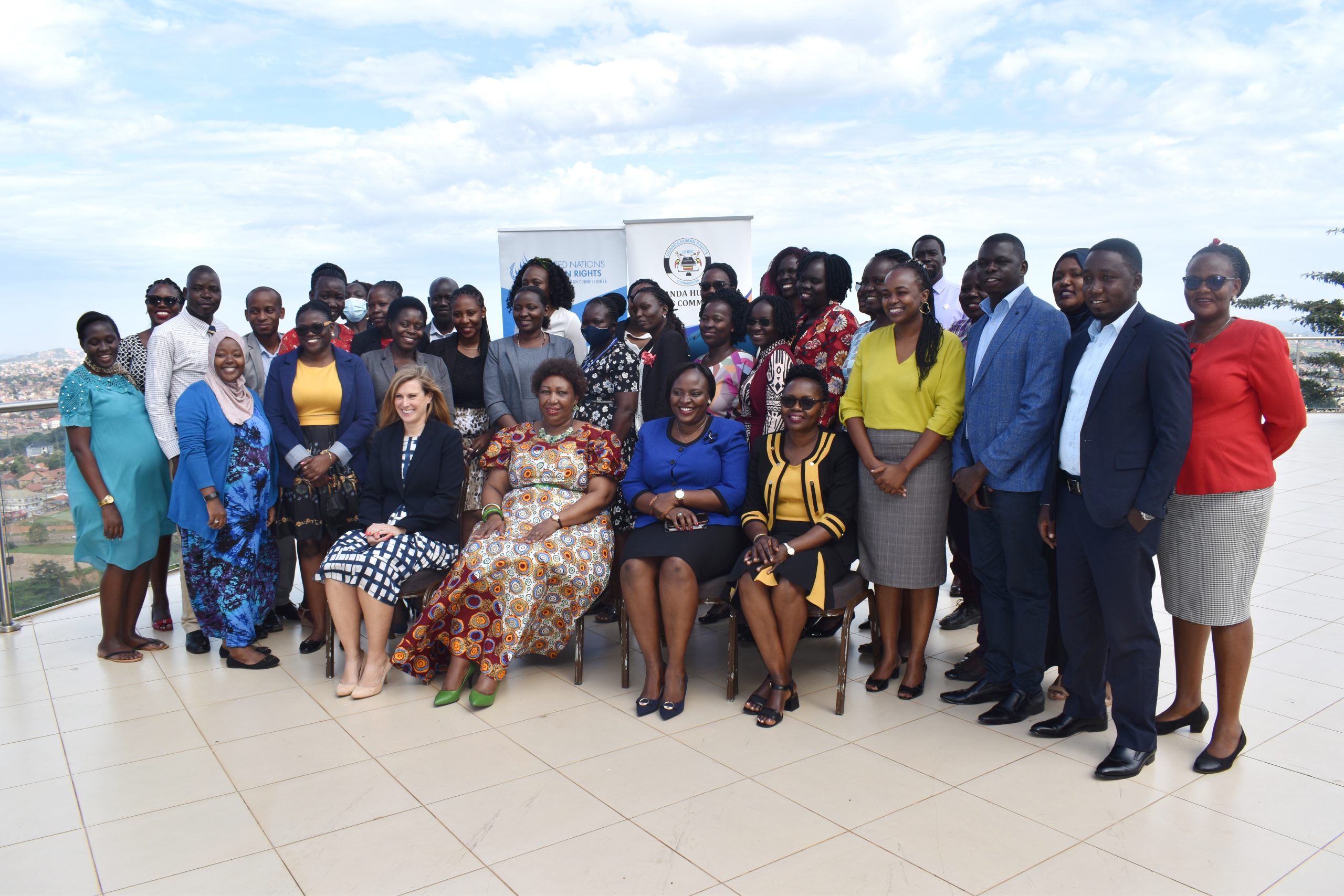
The UN Office of the High Commissioner for Human Rights (UN OHCHR) is conducting a three-day training for selected Uganda Human Rights Commission (UHRC) staff in Business and Human rights as well as Sustainable Development Goals (SDGs).
While officially opening this training today (Tuesday November 1, 2022), the Chairperson Hon. Mariam Wangadya revealed that Uganda adopted and launched the National Action Plan (NAP) on Business and Human Rights in 2021 as a guide to Government and all relevant actors on how to address the human rights concerns that are reported in regards to business activities.
“The UHRC plays a key role in monitoring government’s compliance with the implementation of the NAP on Business and Human Rights. This capacity-building workshop will therefore create awareness among UHRC staff on issues of the Sustainable Development Goals, the UN Guiding Principles on Business and Human Rights, as well as human rights concerns in the different business sectors,” she said.
She noted that the Commission in its capacity as a National Human Rights Institution (NHRI) has been actively involved in a number of activities in monitoring, reporting and handling complaints arising from the adverse impacts of business operations on the enjoyment of human rights in all sectors including: extractive industries, oil and gas, factories, industries and plantation agriculture. The Chairperson cited some of the common human rights violations that the Commission has noted in this area such as child labor, lack of protective gear, low wages, sexual exploitation, environmental degradation and exposure to harmful chemicals, among many others.
“It is because of these human rights violations that UHRC staff carry out the role of monitoring and educating the public and all stakeholders on the need to observe human rights in the business sector. Additionally, the UHRC staff carry out the Commission’s constitutional function of investigating and ensuring that victims who report to it receive redress for the human rights violations committed by any business entity in the country. It is therefore my hope that at the end of this three days’ workshop, UHRC staff will have understood the linkages between SDGs, business and human rights, the UN Guiding Principles on Business and Human Rights, and the principles of human rights monitoring and reporting and their applicability in our everyday work,” Hon. Wangadya stated before declaring the workshop open.
She hailed the OHCHR for their financial and technical support towards this workshop and for their continued partnership with the Commission in the protection and promotion of human rights in Uganda.
On her part, the UN OHCHR Deputy Country Representative. Ms. Grace Pelly said human rights and Agenda 2030 for SDGs are inextricably linked. She emphasized that Agenda 2030 is explicitly grounded in International Human Rights, while pointing out that Sustainable Development Goal 17 specifically seeks to realize human rights for all and that more than 90% of its targets directly reflect elements in international human rights and labor standards.
“OHCHR is therefore happy to support this training as part of its overall capacity-building activities for the UHRC in order to strengthen and reinforce the functions which the UHRC has performed exceptionally well over the years. The training builds on the work already being done by UHRC and the expertise that the UHRC has gained over the years,” she stated.
She noted that OHCHR considers the UHRC, not only as its key partner but also a key domestic mechanism for the promotion and protection of human rights in Uganda. She said this is based on the UHRC’s broad mandate, competencies and ranking as an A-Status accredited National Human Rights Institution (NHRI). The UHRC is also among the very few institutions which offer access to an effective remedy for the least privileged sections of the population.
“We believe, therefore, that to effectively fulfill these roles, the staff at the UHRC need to gain new insights into emerging issues within the business and human rights context. It is also important that they can understand the linkages between SDGs, business and human rights and the relevant international and national human rights standards,” she said. The training which ends on November 3, was attended by Uganda Human Rights Commission Regional Heads, Senior Human Rights Officers and Human Rights Officers from both the Head Office and the regional offices across the country.
